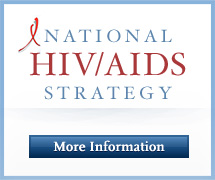HIV/AIDS Housing

Every person, regardless of age, gender, race/ethnicity, sexual orientation, gender identity or socio-economic circumstance, will have unfettered access to high quality, life-extending care, free from stigma and discrimination.
National HIV/AIDS Strategy
Housing as a base from which to receive care
National Commission on AIDS
The first step to better health is a roof over your head
HOPWA Housing resident, Chicago
The
Centers for Disease Control and Prevention (CDC) estimates that over one million Americans are living with HIV and AIDS. Throughout many communities, persons living with HIV or AIDS risk losing their housing due to compounding factors, such as increased medical costs and limited incomes or reduced ability to keep working due to AIDS and related illnesses. Stable housing is the cornerstone of HIV/AIDS treatment, allowing persons with HIV/AIDS to access comprehensive healthcare and adhere to complex HIV/AIDS drug therapies.
HUD's HOPWA Program
To address housing needs for low-income persons who are living with HIV/AIDS and their families, HUD manages the Housing Opportunities for Persons with AIDS (HOPWA) program. The HOPWA program is the only Federal program dedicated to address the housing needs of persons living with HIV/AIDS and their families. Funds are distributed to states and cities by formula allocations and made available as part of the area's Consolidated Plan. In addition, some projects are selected in national competitions to serve as service delivery models or operate in non-formula areas. Grantees partner with nonprofit organizations and housing agencies to provide housing and support to beneficiaries.
Housing Options
Persons living with HIV/AIDS and their families may require housing that provides emergency, transitional, or long-term affordable solutions. A variety of HOPWA programs and projects provide short-and long-term rental assistance, operate community residences or make use of other supportive housing facilities developed to address needs of persons who are living with HIV/AIDS and related challenges. HOPWA Technical Assistance is also available to help manage program resources.
2011 Results and Analysis: The HOPWA program exceeded its FY2011 performance goals.
HOPWA projects that provide for permanent supportive housing have again exceeded the annual goal that 85 percent for those receiving housing assistance will achieve housing stability. This assessment was made for the 25,656 households who benefited from HOPWA permanent housing projects. Grantees reported that of those receiving tenant based rental assistance, 96 percent achieved housing stability and three percent were reported as unstably housed. Further, 94 percent of beneficiaries of permanent housing facilities achieved stable housing outcomes in community residences.
Other HOPWA projects addressed short-term needs for 35,275 households. These projects also exceeded their annual goal that 60 percent for those receiving short term and transitional housing will result in stable housing or reduced risks of homelessness. Grantees reported that 95 percent achieved housing stability or reduced risks of homelessness. By type of project, 95 percent of households who received short-term rent, mortgage, and utility (STRMU) assistance have stable housing outcomes or reduced risks of homelessness. In addition, 79 percent of those receiving transitional housing assistance achieved housing stability or reduced risks of homelessness. The STRMU assistance is limited to no more than 21 weeks in a 52 week period and offers a support used to address a presenting risk of homelessness such as housing eviction. While addressing the current need, these reports noted that 51 percent of STRMU beneficiaries have an on-going housing need that will most likely reoccur.







 HOPWA 20, Housing Innovations in HIV Care
HOPWA 20, Housing Innovations in HIV Care

